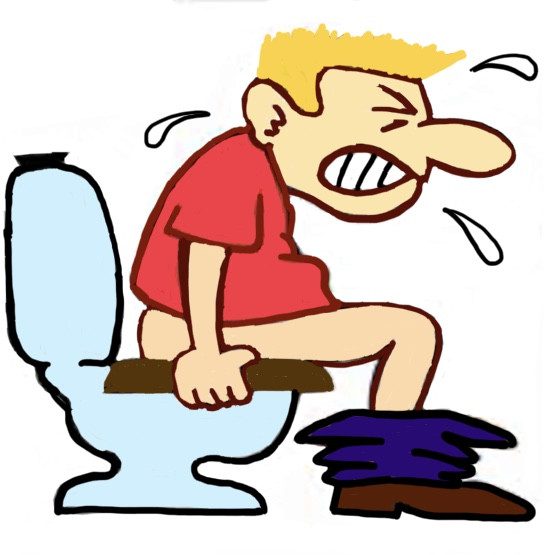Constipation is a word to describe when the stool comes either infrequently or with difficulty. Patients refer to it subjectively if they feel the stool is harder or more rarely coming than they believe it should, as well as despite being soft and coming daily, it is a struggle to empty it.
The medical definition is also broad, but in general a stool frequency of less than once in three days, and or harder than Bristol type 3, and or reported difficulty of evacuation is considered constipation. If the symptoms persist longer than 6 weeks, it is considered chronic constipation and deserves medical attention.
Before any further investigations and especially before resorting to laxatives, the diet and toilet habits need to be corrected. Vast majority of constipation is a result of bad diet and poor habits: the diet needs to contain sufficient fluids and fibers and there should be sufficient relaxed time for the colon to move after mealtimes (at least one or two meals a day consumed not under stress but in a mindful way).
Slow transit colon
Slow transit colon is a rare type of constipation, where the colon is moving too slow and two infrequently to achieve regular emptying. There is some family background in it too and it is more frequent in women. A colon transit test (Sitzmark test) is a simple way to diagnose or exclude this rare condition.
Obstructed defecation
Majority of true constipations are obstructed defecation type of constipations. In these cases, the stool arrives at the rectum at a normal pace, however, emptying it from there, through the anus, is difficult.
Obstructed defecation often comes with a feeling of incomplete evacuation, long time spent on the toilet and several attempts a day at emptying. The reasons for obstructed defecation can be structural, like changes to the pelvic floor or perirectal-perianal tissues, because of childbirth, ageing or bad toilet habits with years of straining at stools. The other group of problems leading to obstructed defecation are functional: muscle tightness, non-relaxation or paradoxical contraction of the anal or pelvic floor muscles during defecation blocking the way of the stool to empty.
What signs and symptoms one has with this problem?
Constipation is itself a symptom. When the stool comes less frequent then your previous normals, and/or it is harder, and/or it takes more time and more effort to empty it, you have constipation.
If you believe that you did your best at eating healthy, there are enough dietary fibers in your food, with sufficient liquid intake (over 2200 mls a day) and the symptoms still persist for more than 6 weeks, then it is suggested you seek medical advice.
